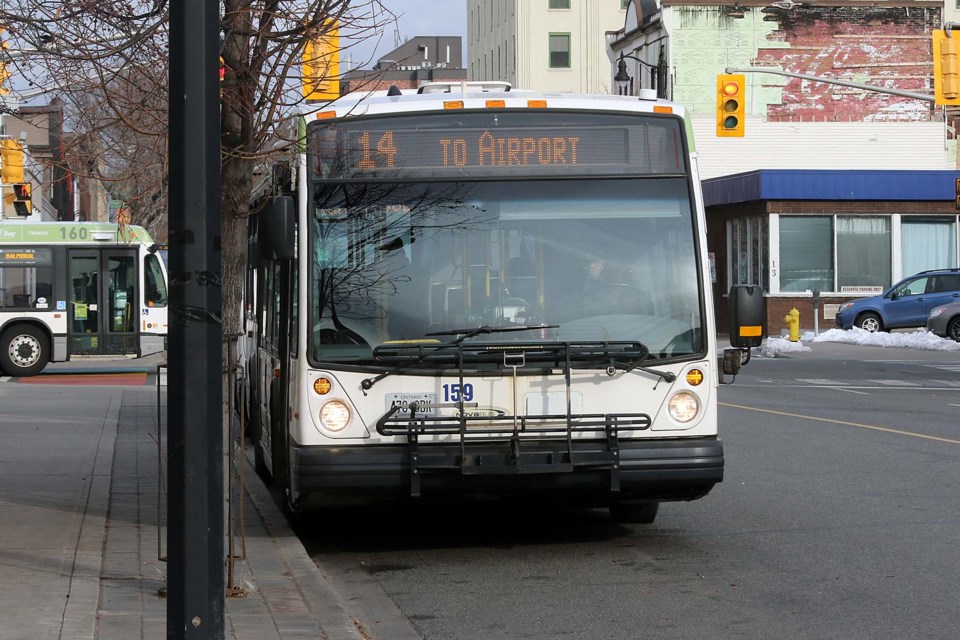THUNDER BAY – It may not be the fare-free transit some advocates have pushed for, but a Thunder Bay Transit pilot project could expand free and discounted rides to thousands of children and youth beginning next year.
It's just one in a package of potential changes to how residents pay for public transit presented to city council on Monday, as Thunder Bay Transit develops a new fare strategy.
A three-year pilot project would expand the age limit for children, who ride free, from five to 12 years old. It would also expand the category for youth, who receive discounted monthly passes, to include those 13 to 24 (currently 6 to 18).
The changes respond in part to alarming data from community partners on the prevalence of child and youth poverty in Thunder Bay, transit manager Brad Loroff told councillors. More than 20 per cent of local children are living below Canada's low-income cut-off, according to the Lakehead Social Planning Council (LSPC).
“That certainly identifies to us that there’s a need to provide fare pricing relief for people who travel with children, and youth themselves," Loroff said.
LSPC researcher Bonnie Krysowaty said the expansion of free and discounted transit for children and youth would be an encouraging sign the city is listening to the data on poverty.
Whether or not youth have easy access to reliable transportation has knock-on effects for their ability to pursue and maintain employment, among other opportunities, she said.
"Without transit, it's nearly impossible sometimes, especially if the job is across the city."
City council had directed the transit department to work with the LSPC and other anti-poverty groups as it develops a new fare strategy for the first time since 2013.
In a report to council, Loroff said Transit would balance the desire to expand access and ridership with the importance of cost recovery as it develops the new fare strategy. The department currently recoups in the neighbourhood of 35 per cent of its costs through fares and passes.
Coun. Aldo Ruberto argued expanding public transit provides a wide array of benefits that can be harder to measure, but are just as important.
“It’s not just all economics in terms of what is Transit making or losing,” he said. “There’s another way of estimating value for our city – are these people taking their children to appointments? Are people who have low incomes getting to jobs? Are people better off getting around the city?”
Short-term changes being considered the new strategy that could be rolled out in 2022 include extending transfer validity from 60 to 90 minutes and increasing the cost of adult monthly passes, as well as the age category changes.
Ideas being evaluated for implementation in 2023 and beyond include a discounted "eCash fare" as the city implements an electronic fare management system, a discounted monthly pass for those with lower incomes, discounted passes that can be purchased by employers for their workers, and time-of-day or day of the week pricing that makes riding cheaper during less busy times.
The electronic fare system, which will allow riders to use reloadable smart cards, is expected to be in place by 2023. The program has been supported in part by new federal funding, which also supported new bus purchases, stop improvements, and the planned addition of WiFi on board.
Transit will return to council on Dec. 6 following public consultations and further development of the fare strategy.
